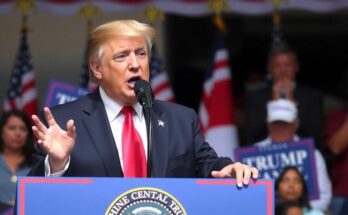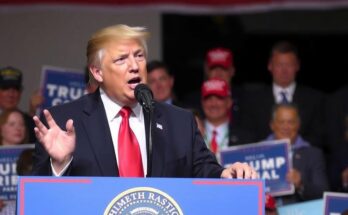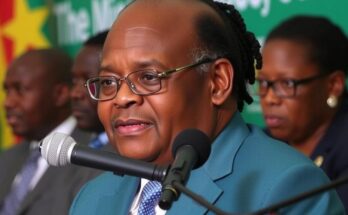Ghana’s presidential election results show former President John Mahama leading with 61% against Vice-President Mahamudu Bawumia’s 38%. Bawumia has conceded defeat, while Mahama, expected to be sworn in on January 7, 2025, aims to address the nation’s economic crises. This election marks a significant moment in Ghana’s political history, with Mahama poised for a comeback after losing in 2020.
The initial results of Ghana’s presidential election indicate that former President John Mahama of the National Democratic Congress (NDC) has established a significant lead, garnering 61% of the votes compared to Vice-President Mahamudu Bawumia’s 38%. Bawumia has publicly acknowledged his defeat and extended congratulations to Mahama, who appears poised for a remarkable comeback after having lost the previous election in 2020. The election results are expected to be officially confirmed across the remaining regions, yet Mahama has already achieved victories in four regions previously held by the ruling New Patriotic Party (NPP).
This election is taking place during a challenging economic environment in Ghana, marked by high unemployment rates and escalating living costs, prompting the electorate to seek a change in leadership. Mahama’s campaign promises of economic transformation and a transition to a “24-hour economy” resonated with voters. His leadership from 2012 to 2017 was characterized by noteworthy challenges, including economic difficulties and corruption scandals, though many citizens express hope that his return will yield improved outcomes. The official inauguration of Mahama is scheduled for January 7, 2025, making Ghana the fifth African nation this year to witness an opposition victory, reflecting a pattern of political shifts within the continent.
Ghana has a history of alternating political power between the two principal parties: the National Democratic Congress (NDC) and the New Patriotic Party (NPP), especially since the re-establishment of multi-party democracy in 1992. No party has ever secured more than two consecutive terms in government, establishing a cycle of rotation that seems destined to continue with the current election results favoring Mahama. This shift comes amid severe economic challenges that have significantly impacted the general populace, leading to widespread discontent and a pressing demand for new governance. Mahama previously served as president from 2012 to 2017, and his prior administration faced severe criticism largely due to economic mismanagement and corruption allegations. Thus, this election is critical not only for Mahama’s political career but also for the country’s future trajectory.
In conclusion, the election results suggest a historic turnaround for Ghana as former President John Mahama emerges with a strong lead, signaling a potential shift in national governance. With pressing economic issues and a public desire for change, Mahama’s return could redefine the country’s direction. His supporters have begun celebrating, while ongoing tensions from electoral delays remind all of the challenges ahead. As Ghana prepares for this new chapter, the impact of Mahama’s leadership will be closely observed.
Original Source: www.bbc.com




